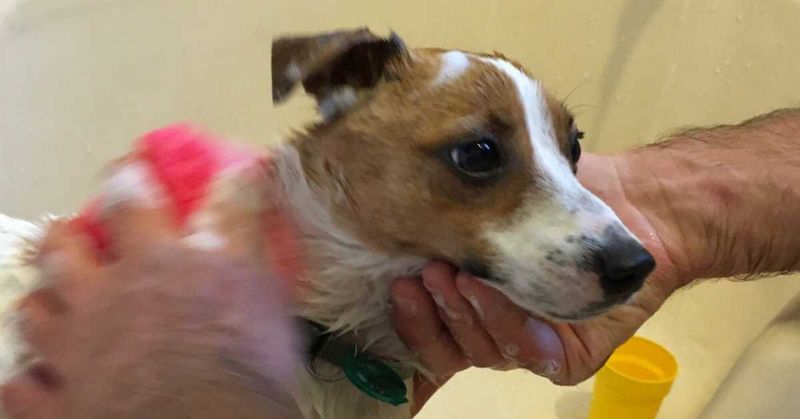Your dog can’t say, “I don’t feel good.” But their body might be shouting it. Not all sickness comes with drama. No loud whining, no limping, no dramatic vomiting on the carpet. Sometimes, it’s just a change in routine—a skipped meal, a weird nap spot, or a strange look in their eyes. And that’s where trouble hides. The early signs of illness in dogs are often so subtle, they slip right past even the most loving owners. But spotting them early can make all the difference. Here are 5 quiet red flags that could mean your dog is sick—and why you shouldn’t brush them off.
Lethargy

Lethargy can be a silent alarm of a dog’s health. If your usually playful pup suddenly prefers sleeping over playing, pay attention. Perhaps it’s just a lazy day, but if this demeanor continues, it could signal underlying health issues. Dogs may become listless due to infections, metabolic disorders, or even heart disease. Don’t disregard this change if it persists beyond a day or two. By observing your pet closely, you can determine whether this behavior warrants a vet visit. Did you know? Lethargy in dogs can also be a symptom of dehydration, which often goes unnoticed.
Loss of Appetite

Loss of appetite should never be brushed off as mere pickiness. Is your dog consistently ignoring meals? It may hint at dental problems, digestive issues, or even emotional distress. Regularly monitor their eating habits, as a sudden change can signal illness. Dogs, like humans, can suffer from an upset stomach or more severe health problems. If skipping meals becomes a pattern, it’s time to consult your vet. An interesting tidbit: Dogs’ appetites can also wane due to sudden environmental changes or stress. Keep a keen eye on behavioral changes accompanying this sign.
Excessive Thirst

Excessive thirst in dogs might point to more than just post-playtime hydration needs. This sudden increase in water consumption could be a signal of diabetes, kidney disease, or other serious health issues. While warm weather or exercise can explain some thirst, persistent drinking demands further investigation. Measure how much water your dog consumes daily to help your vet assess the situation. Here’s a fun fact: Dogs sweat through their paws, so sometimes, increased thirst is just their body’s way of cooling down. Always consider context and consistency in your observations.
Unusual Odors

Strange smells emanating from your pet are not just unpleasant but can indicate health issues. If your dog suddenly develops a foul odor, it could stem from dental problems, skin infections, or ear diseases. Pay close attention to the area where the smell originates. Regular grooming and inspections can prevent these conditions from worsening. Fun fact: Some dog breeds have a natural musk, which can sometimes be mistaken for illness. Differentiate between natural scent and unusual smells to ensure your pet’s well-being.
Persistent Coughing

Persistent coughing in your dog should not be taken lightly. A cough might reflect something as minor as a throat irritation or as serious as heartworms or respiratory diseases. If the coughing doesn’t cease, especially if accompanied by other symptoms, it’s time for a professional evaluation. Coughs are often the body’s way of clearing irritants, but chronic cases need attention. Did you know? Coughing can sometimes result from a condition called kennel cough, common among dogs in social environments. Always observe and act promptly.

